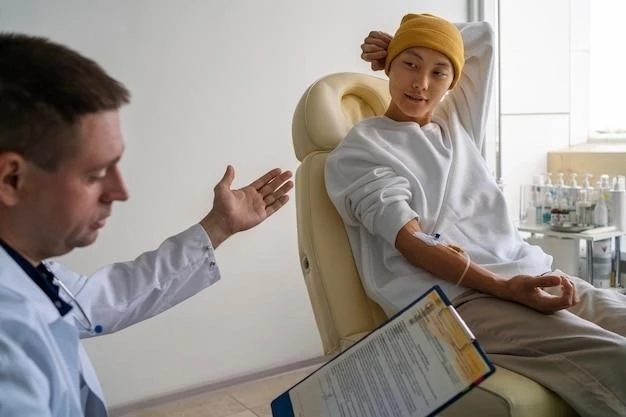Causes of Central Serous Chorioretinopathy
Understanding the causes is crucial. Stress and genetics can play a significant role.
Stress and Cortisol Levels
Elevated stress levels and high cortisol can trigger Central Serous Chorioretinopathy. Managing stress through relaxation techniques, exercise, and mindfulness may help reduce the risk of developing this eye condition. Prioritize activities that promote relaxation to maintain optimal eye health.
Genetic Predisposition
Genetic factors can increase susceptibility to Central Serous Chorioretinopathy. If you have a family history of this condition, consider discussing genetic testing with your healthcare provider. Understanding your genetic predisposition can guide preventive measures and regular screenings to preserve your vision health.
Symptoms and Diagnosis of Chorioretinopathy
Recognizing symptoms early is crucial. Vision changes like distortion or loss should prompt evaluation.
Blurred or Distorted Vision
If you experience blurred or distorted vision, especially in the center, seek immediate eye care. These symptoms may indicate Chorioretinopathy or other eye conditions that require prompt diagnosis and treatment. Don’t ignore changes in your vision; early intervention is crucial for your eye health.
Central Vision Loss
Central vision loss can be a sign of severe Chorioretinopathy. If you notice a decrease in your central vision, particularly in one eye, schedule an eye exam promptly. Early detection of central vision loss can lead to timely treatment interventions that may help prevent further vision deterioration.
Optical Coherence Tomography (OCT) Scan
An OCT scan is a crucial diagnostic tool for Chorioretinopathy. This non-invasive imaging test provides detailed cross-sectional images of the retina, aiding in the accurate diagnosis of retinal conditions. If your eye specialist recommends an OCT scan, ensure timely completion to support precise treatment planning and monitoring of your eye health.

Treatment Options for Chorioretinopathy
Explore diverse treatment options. Discuss with your eye specialist for personalized care.
Observation and Lifestyle Changes
Close monitoring along with lifestyle modifications can positively impact Chorioretinopathy. Implementing a healthy diet, regular exercise, and stress reduction techniques can complement your treatment plan. Work closely with your healthcare team to incorporate these changes for better eye health outcomes.
Laser Therapy
Laser therapy is a common treatment for Chorioretinopathy. This procedure aims to seal leaking blood vessels in the retina, reducing fluid accumulation; Consult your ophthalmologist to determine if laser therapy is suitable for your condition. Understanding the procedure and its potential benefits is key to making informed treatment decisions.
Anti-VEGF Injections
Anti-VEGF injections are a targeted therapy for Chorioretinopathy. These injections can help reduce abnormal blood vessel growth and leakage in the retina. If recommended by your eye specialist, consider the benefits and potential risks of anti-VEGF therapy. Adhering to the treatment schedule is crucial for optimal outcomes in managing your eye condition.
Lifestyle Changes to Manage Chorioretinopathy
Embrace positive changes to support your eye health journey. Consult your healthcare provider for guidance.
Stress Management Techniques
Implement stress-reducing practices to benefit your eye health. Techniques like mindfulness, deep breathing exercises, or yoga can help lower stress levels. Prioritize self-care and seek support when needed to manage stress effectively. A holistic approach to stress management can positively impact your overall well-being and eye health.
Healthy Diet and Exercise
Opt for a balanced diet rich in fruits, vegetables, and omega-3 fatty acids to support eye health. Regular exercise promotes circulation and overall well-being٫ benefiting your eyes. Consult a healthcare provider to create a personalized diet and exercise plan. Small lifestyle changes can have a significant impact on managing Chorioretinopathy.
Research Updates on Chorioretinopathy
Stay informed about the latest advancements in Chorioretinopathy research for optimal eye care.
Advancements in Treatment Modalities
Stay updated on innovative treatments for Chorioretinopathy. New modalities may offer improved outcomes. Discuss with your healthcare provider to explore these advancements and determine the most suitable treatment plan for your individual needs. Keeping abreast of emerging therapies can enhance your journey towards better eye health.
Potential Targeted Therapies
Explore potential targeted therapies for Chorioretinopathy. These tailored treatments aim to address specific causes of the condition, offering a more personalized approach to care. Stay informed about advancements in targeted therapies and discuss with your healthcare team to determine if these options align with your treatment goals and needs.
Risk Factors Associated with Chorioretinopathy
Learn about the factors that may influence your risk for Chorioretinopathy. Stay informed for proactive care.
Age and Gender
Understand how age and gender can impact Chorioretinopathy risk. Stay vigilant with regular eye check-ups to monitor any changes. Discuss personalized preventive strategies with your eye care provider based on your age and gender factors to safeguard your vision health effectively.
Hypertension and Smoking
Be aware of the risks associated with hypertension and smoking in Chorioretinopathy development. Manage blood pressure levels and avoid smoking to reduce these risk factors. Adopt a healthy lifestyle with regular exercise and a balanced diet to support overall eye health and lower the chances of complications related to hypertension and smoking.
Preventive Measures for Central Serous Chorioretinopathy
Take proactive steps to prevent onset. Regular eye exams and stress reduction techniques are essential.
Regular Eye Exams
Prioritize routine eye check-ups to detect early signs of Chorioretinopathy. Timely diagnosis is key to effective treatment. Make it a habit to schedule regular eye exams with an ophthalmologist to monitor your eye health and address any concerns promptly. Protect your vision through proactive healthcare measures.
Stress Reduction Techniques
Adopt stress-relief methods to protect your eyes. Engage in activities like meditation, yoga, or hobbies you enjoy to reduce stress levels. Prioritize self-care and seek professional guidance if needed to manage stress effectively. Consistent stress reduction techniques can benefit your overall well-being and potentially lower the risk of Chorioretinopathy.
Impact of Chorioretinopathy on Vision
Understand how Chorioretinopathy can affect vision. Early intervention is crucial for optimal outcomes.
Long-term Effects on Visual Acuity
Recognize the potential long-term impact on visual acuity due to Chorioretinopathy. Regular monitoring and adherence to treatment plans are essential to preserve vision. Consult your eye specialist for personalized care and follow-up appointments to manage the condition effectively. Prioritize your eye health for sustained visual acuity.
Importance of Timely Diagnosis and Treatment
Timely identification and treatment of Chorioretinopathy are critical for preserving vision. Consult an eye specialist promptly if you notice any concerning symptoms. Early intervention can help prevent vision loss and manage the condition effectively. Prioritize regular eye exams and follow your healthcare provider’s recommendations for optimal eye health.
